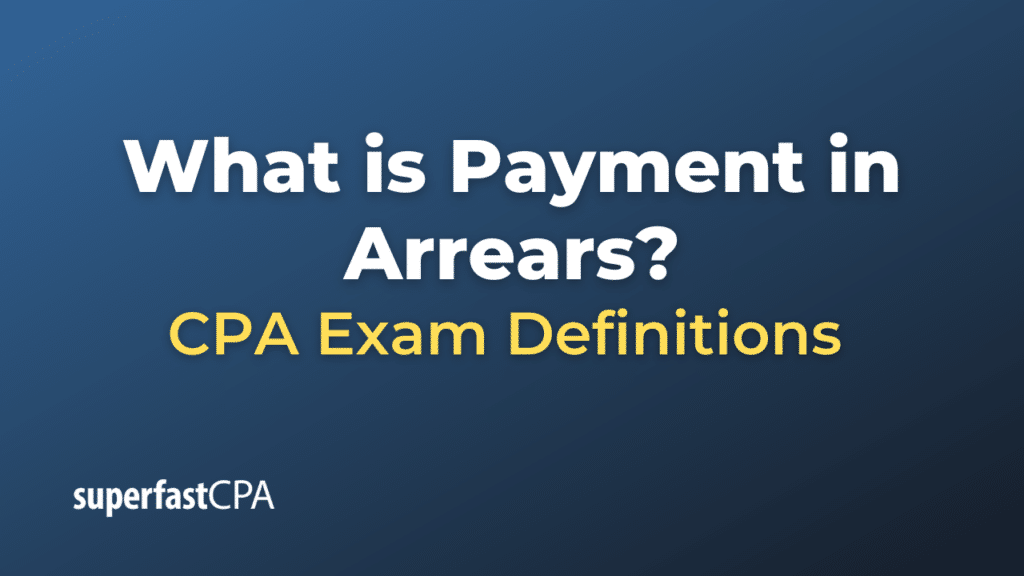Payment in Arrears
Payment in arrears refers to a payment that is made after the service or goods have been delivered or rendered. It is the opposite of payment in advance.
In many cases, payment is expected to be made within a certain time frame after the invoice has been issued. For example, net-30 terms mean that the full amount of the invoice is expected to be paid within 30 days of the invoice date. If the payment isn’t made within the specified time period, it is considered late or in arrears.
Example of Payment in Arrears
Let’s say Company XYZ hires an independent consulting firm to help improve its supply chain efficiency. The consulting firm conducts a thorough analysis of Company XYZ’s supply chain over a period of a month and presents its findings along with recommended solutions.
Once the consulting firm has completed its services, it sends an invoice to Company XYZ. The terms of the invoice state that Company XYZ has to make the payment within 60 days of receiving the invoice, thus, the consulting firm is expecting payment in arrears, as they are asking to be paid after the services have been provided.
Now, let’s say Company XYZ doesn’t pay the consulting firm until 75 days after receiving the invoice. This means Company XYZ’s payment is not only made in arrears (after services were rendered) but it’s also overdue and now considered to be “in arrears.” At this point, the consulting firm might charge interest or late fees, or take other steps to collect the owed payment.














